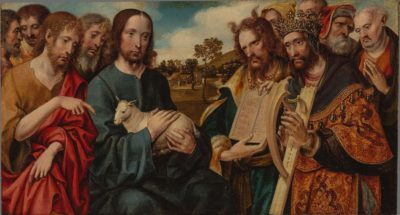 Readings:
Readings:
Exodus 19:2–6
Psalm 100:1–2, 3, 5
Romans 5:6–11
Matthew 9:36–10:8
The words God speaks to Israel in today’s First Reading are intended for us as well.
The Church is the fulfillment of God’s covenant promises to Israel—a kingdom of priests and a holy nation (see Deuteronomy 26:19; Isaiah 62:12).
In the Church, we have been gathered as the new “Israel of God” (see Galatians 6:16). He has made us His own people, the flock He tends, as we sing in today’s Psalm.
Moses was Israel’s first shepherd (see Exodus 3:1). With the Promised Land in view, he prayed that God would raise up a successor so that God’s people would not be left as sheep without a shepherd (see Numbers 27:17).
These same words are used in today’s Gospel to describe Jesus’ pity for the crowds, who are “troubled and abandoned, like sheep without a shepherd.”
Israel’s shepherds—the Pharisees and scribes—had abandoned and misled the people through their hypocrisy and spiritual blindness (see Matthew 23:1–36; Jeremiah 50:6).
But God had long before promised that He Himself would come and save His sheep—searching over the whole earth where they had been scattered “for lack of a shepherd” (see Ezekiel 34:1–24).
Jesus is the new Moses and new David promised by the prophets, a divine shepherd-king sent to restore God’s priestly kingdom (see John 10:11).
As Moses commissioned Joshua as his successor, so we see Jesus today giving the Twelve His powers and authority (see Matthew 9:35; 10:1). In God’s plan, they are to seek out the lost sheep of Israel first and then bring all nations into the fold (see Acts 13:46; Romans 1:16).
Together we have been saved and reconciled to God, as we hear in today’s Epistle. As He delivered Israel, He has also made us a kingdom of priests in the Church (see Revelation 1:6).
So we come in this Mass to serve Him with gladness, to praise His kindness, which endures forever.













